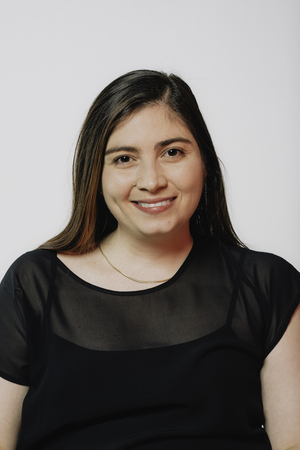Prueba piloto del Programa de Formación Integral: Diseñando Mi Futuro para personas estudiantes nuevas de la Universidad LCI VERITAS, Costa Rica
##plugins.themes.bootstrap3.article.main##
Palabras clave
distribución del tiempo, adaptación del estudiante, orientación pedagógica, enseñanza superior
Resumen
Objetivo: Evaluar los principales resultados de la aplicación de la prueba piloto del Programa de Formación Integral: Diseñando Mi Futuro, específicamente del MOOC Tiempo para todo, a estudiantes de primer cuatrimestre de la Universidad LCI Veritas.
Metodología: Es un estudio mixto bajo un diseño explicativo secuencial. Se consideraron datos cuantitativos recolectados en la encuesta de evaluación y un instrumento de hábitos de organización del tiempo (post y pretest), para luego profundizar, con datos cualitativos de esta evaluación, los productos del curso y la información de las entrevistas a docentes. La fuente principal fue el estudiantado participante (n=161) y las otras fuentes fueron dos docentes representantes de los cursos participantes de la prueba piloto y 483 documentos.
Resultados: Existe una alta calidad pedagógica y un incremento en las competencias esperadas de organización del tiempo. El 76% del estudiantado presenta alta satisfacción, en especial, en los recursos de aprendizaje, diseño instruccional y contenidos. De hecho, el 86% del estudiantado recomendaría el MOOC a otro par, además, el 87% de la población consiguió al final del MOOC una alta frecuencia en hábitos de organización del tiempo, principalmente, en la planificación.
Conclusiones: Los resultados del pilotaje del MOOC Tiempo para todo se evalúan como altamente positivos tanto en la formación del estudiantado como para el trabajo del profesorado y la Oficina de Orientación. Se recomienda su aplicación en todas las carreras de la universidad, planificar acciones para mejorar la motivación del estudiantado y enfatizar más en el uso de estrategias de organización del tiempo.
Descargas
Citas
Bustinduy, I. (2015). La gestión del tiempo. Editorial UOC.
Cabero, J., Llorente, M., y Vázquez, A. (2014). Las tipologías de MOOC: su diseño e implicaciones educativas. Profesorado. Revista de Currículum y Formación de Profesorado, 18(1), 13-26. https://www.redalyc.org/pdf/567/56730662002.pdf
Colegio Profesional en Orientación (2012). Código de ética. https://www.cpocr.org/wp-content/uploads/2012/10/C%C3%93DIGO-DE-%C3%89TICA-CPO-5-nov-12.pdf
Cordero, M. (28 de abril de 2020). Estudiantes arrastrarán contenidos hasta por tres años debido al Covid 19, asegura ministra.
Seminario Universidad. https://semanariouniversidad.com/pais/estudiantes-arrastraran-contenidos-hasta-por
Díaz, Y., Baena, M., y Baena, G. (2017). MOOC en la educación: Un acercamiento al estado de conocimiento en Iberoamérica, 2014-2017. RIDE Revista Iberoamericana para la Investigación y el Desarrollo Educativo, 8 (15), 1-20. https://doi.org/10.23913/ride.v8i15.299
Durán-Aponte, E. y Pujol, L. (2013). Manejo del tiempo académico en jóvenes que inician estudios en la Universidad Simón Bolívar. Revista Latinoamericana de Ciencias Sociales, Niñez y Juventud, 11(1), 93-108. https://www.redalyc.org/articulo.oa?id=77325885022
Esquivel, C., Quesada, A., y Arias, F. (2023). Valoración de la técnica SPOC (Cursos de aprendizaje en línea, SPOC por sus siglas en inglés) en la enseñanza y aprendizaje en la educación pública superior post COVID-19 para las carreras de Administración Pública, Administración Aduanera y Comercio Exterior y Farmacia. https://www.sinaes.ac.cr/wp-content/uploads/2023/09/Infome_UCR_EAP-Farmacia-2023.pdf
Fundación Atenea (s.f.). Guía de Gestión del tiempo. https://www.ayto-velilla.es/wp-content/uploads/GuiaGestionTiempo-1.pdf
Hernández, R. (2014). Metodología de la investigación. McGraw- Hill Education/Interamericana Editores, S.A.
Madriz, A. (1 de setiembre de 2023). Apagón educativo en Costa Rica deja un rezago de dos años en aprendizaje. La República. https://www.larepublica.net/noticia/apagon-educativo-en-costa-rica-deja-un-rezago-de-dos-anos-en-aprendizaje
Pereira, M. (2015). Mediación docente de la Orientación educativa y vocacional. EUNED.
Pérez, F., y García, R. (s.f.). Gestión del Tiempo para Estudiantes. Pon el tiempo en su sitio. https://www.uv.es/iqdocent/guias/tiempo.pdf
Plaza, J. Uriguen, P. y Bejarano, H. (2017). Validez y confiabilidad en la investigación cualitativa. Revista de Postgrado FaCE-UC, 11(21), 352-357. https://es.scribd.com/document/374991697/Validez-y-Confiabilidad-de-La-Investigacion-Cualitativa
Poy, R. y González, A. (2014). Factores de éxito de los MOOC: algunas consideraciones críticas. Revista Ibérica de Sistemas y Tecnología de información, 1(3), 105-118. https://risti.xyz/issues/ristie1.pdf
Programa Estado de la Nación. (2023). Noveno Informe del Estado de la Educación. https://estadonacion.or.cr/?informes=informe-estado-de-la-educacion-2023
Ríos, N. (2017, 15-17 de noviembre). Implementación de un MOOC accesible de fundamentos de programación en JAVA bajo la plataforma Open EDX para la Universidad Nacional [Ponencia]. XVII Congreso Internacional: Innovación y tecnología en educación a distancia. https://www.uned.ac.cr/actividades/xviiconint/memoria/Docs/ponencias/eje_de_
Rodríguez, A., y Clariana, M. (2017). Procrastinación en estudiantes universitarios: su relación con la edad y el curso académico. Revista Colombiana de Psicología, 26(1), 45-60. https://doi.org/10.15446/rcp.v26n1.53572
Roig, R., Mengual, S., y Suárez, C. (2014). Evaluación de la calidad pedagógica de los MOOC. Profesorado. Revista de Currículum y Formación de Profesorado, 18(1), 27-41. http://hdl.handle.net/10045/37206
Román, I. y Murillo, D. (1 de marzo de 2019). ¿Qué impacto tuvo la huelga en educación sobre las familias? Blog Programa Estado de la Nación. https://estadonacion.or.cr/que-impactos-tuvo-la-huelga-en-educacion-sobre-las-familias/
Ruiz, C. (2015). El MOOC: ¿un modelo alternativo para la educación universitaria? Revista Apertura, 7(2), 1-14. https://www.scielo.org.mx/pdf/apertura/v7n2/2007-1094-apertura-7-02-00086.pdf://www.scielo.org.mx/pdf/apertura/v7n2/2007-1094-apertura-7-02-00086.pdf
Santamaría, M. (2014). MOOCs y SPOCs (Small Private Online Courses): Sus posibilidades para la formación del profesorado. Hamut’ay, 1(1), 6-17. https://dialnet.unirioja.es/servlet/articulo?codigo=5665679
Vázquez, E. y López, E. (2014). Los MOOC y la educación superior: la expansión del conocimiento. Profesorado. Revista de Currículum y Formación de Profesorado, 18(1), 3-12. https://www.redalyc.org/articulo.oa?id=56730662001


